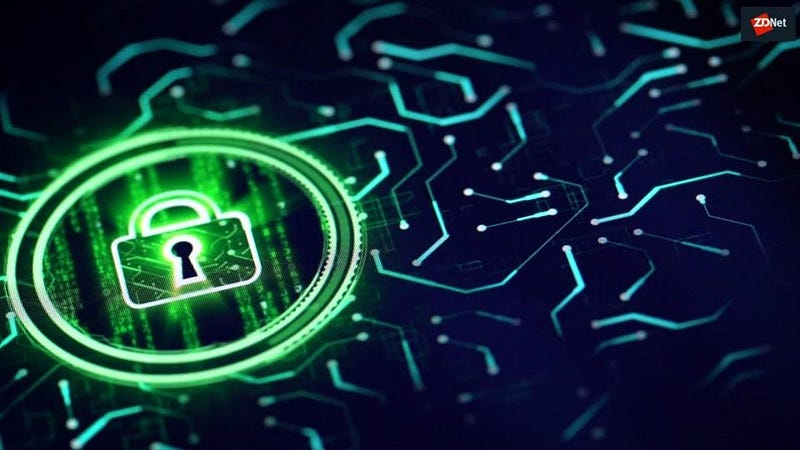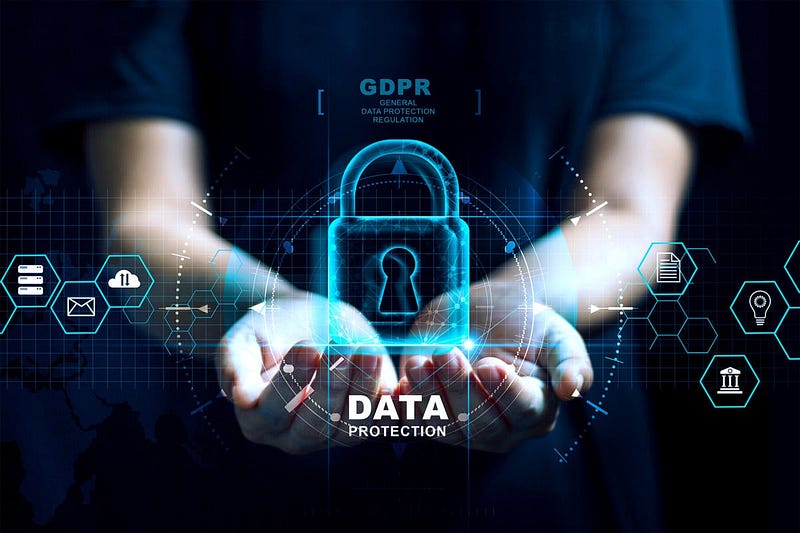
Qitchain and Zero Knowledge Proof: An Impressive Addition
Introduction
Blockchain is a reliable option for the privacy and security required when sharing information, transparency is a downside. As a result, Zero Knowledge Proof has become one of the most popular methods for ensuring transaction anonymity.
Blockchain has undergone significant developments in recent years, as the following explanation explains. Since the inception of the Blockchain, cryptography has been seen as a crucial component. In fact, blockchain cryptography is the main reason for its widespread adoption in different industries and by different companies. When a new cryptographic protocol or math-based method was introduced, ZKP Blockchain applications were born. With the invention of the zero-knowledge proof, a new era in cryptography began. One of the best-known cryptographic innovations with a wide range of applications, such as nuclear disarmament, is one of the key examples.
What is Zero Knowledge Proof?
Zero-knowledge proof is an encryption scheme in which one party (the verifier) can prove the truth of specific information to another party (the verifier) without disclosing additional information. Despite being used to improve blockchain functionality, the protocol predates the invention of the decentralized ledger by forty years.
There are two main types of zero-knowledge demonstrations: interactive and non-interactive.
Interactive ZKPs involve a series of activities or actions that the verifier must complete to convince the verifier that he has certain information. Most of the required activities performed in interactive ZKPs usually involve mathematical probability concepts.
Non-interactive ZKPs do not require interaction between the verifier and the verifier, or the verification can be performed at a later stage. These types of ZKPs require additional computers or software.
All zero-knowledge proofs contain three essential requirements:
Completeness: If a statement is true, the reviewer can confirm that they have the required input.
Accuracy: The statement cannot be tampered with, and the verifier cannot be persuaded that the prover has the required input if it does not.
Zero-Knowledge: The verifier cannot know any information beyond the statement of whether it is true or false. Details of information and personal data of other parties remain anonymous.
In either case, the auditor would have no further information. Researchers are looking for ways to improve the accuracy of the procedure and reduce the number of interactions needed between two peers. Essentially, the idea is to reduce the amount of communication and move to a single reference statement to maintain confidentiality. Proof-of-knowledge applications have been gaining prominence for some time. But this is not a new idea that came out of nowhere. It’s been a neighbourhood staple for two decades. The researchers increased the production and efficiency of the system. A claim can be proven in seconds with today’s technology. You can now possible to communicate directly with the blockchain.
How does it work?
There are several reasons to use ZKP in Blockchain and you should already be aware of them. There hasn’t been much talk of a symbiotic connection between the ZKP blockchain and industry leaders, experts and decision makers as it should have been. ZKPs can support the expansion of the Blockchain while granting users greater control and freedom over their data. Therefore, it is natural to wonder how ZKPs can change the world of Blockchain technology. Let’s take a look at how zero-knowledge proofs (ZKPs) are changing the blockchain system to find out how ZKPs are changing it. Blockchain based messaging apps
Messaging is the primary use case for ZKPs in the blockchain. When it comes to protecting personal information, end-to-end encryption is a must. Communication between two people must be protected from prying eyes by encryption. Most email services require users to authenticate with the server, and the server must identify the user. On the other hand, Zero-Knowledge-Proof helps establish end-to-end trust in the world of communication without missing more information. In the context of Blockchain, the use of ZKP in messaging apps is therefore a fundamental application.
Verification and authentication processes
Businesses have gradually come to appreciate the secure transmission of sensitive data, particularly with the rapid expansion of information systems and associated capabilities. With the promise of better security than zero-knowledge proof can provide, it may be the right platform for transferring sensitive information, such as authentication information. You can create a secure path for users to access and use their data using zero-knowledge evidence. As a result, at worst, ZKPs can significantly reduce the risk of data loss. Next-Generation Filesystem Control It’s also possible that zero-knowledge proofs will revolutionize filesystem control in the future. Users, data, and connections can benefit from additional layers of security provided by a zero-knowledge guarantee. Therefore, data stored in ZKP-protected file systems can be difficult to hack or manipulate.
Free support even for the most difficult types of documentation
Zero-knowledge proofs can also be used for complex documentation operations in the blockchain space. This can help enable data encryption in segments. Since users can easily manage individual blocks, they can grant access to a specific person. It also ensures that other users’ access is restricted. To provide the best possible protection for complicated equipment, ZKPs can deny access to unauthorized personnel.
Keep your stuff safe
Concerns about storage utility can be dispelled thanks to the ZKP blockchain partnership in general. In terms of storage protection, ZKPs are considered to be one of the most valuable assets available. Zero knowledge proofs contain both information stored on the storage drive and a security mechanism for that storage drive. Above all, the access routes are protected by sturdy guards, allowing for a smooth and highly safe experience.
Personal data protection measures
Zero-knowledge proof plays a vital role in determining the methods Blockchain uses to update transactions. ZKP can provide a high level of security for all blocks containing sensitive banking information such as account balances and transaction histories. Due to the high level of security, banks can only make changes to necessary locks when a user requests information. This leaves the other blocks unchanged, protecting the entire system.

Democratization of voter authentication verification
The use of zero-knowledge proof with Blockchain is mainly used to validate votes in democratic elections. ZKPs that record votes on a public blockchain can provide reliable solutions for verifiable voting. Therefore, third-party verification of the voting process would not be necessary, and censorship would be eliminated. Sensitive personal data of voters can be protected by ZKPs to allow them to prove their eligibility to vote.
Optimization of blockchain transaction verification
The case of ING is another notable implementation of the ZKP blockchain in the real world. ING has unveiled a solution that uses ZKPs in conjunction with Corda, a well-known commercial blockchain platform, to ensure the legitimacy of transactions. ZKPs have brought Corda’s privacy and security options to a wider audience. However, it now serves two purposes at the same time.
Impact on blockchain
So far, we have gained insight into how zero-knowledge evidence can be used on the Blockchain. Now let’s turn our attention to the practical effects of implementing ZKP on a blockchain. Many industries such as information systems management, government and technology platforms have adopted blockchain technology. Zero-knowledge trials can change the importance of trust in relationships due to their ability to build greater trust and credibility. Let’s take a look at some of the best examples of how ZKPs have influenced blockchain technology. People, Governments, and Businesses Form New Relationships in the Modern World ZKPs and blockchain have the potential to significantly impact the way people, businesses, and governments interact. Zero-knowledge proofs can be used to prove facts without revealing additional information. ZKPs, on the other hand, can help us build a new society where every transaction is guaranteed to be safe. With ZKP, users no longer have to trust their judgment. When exchanging information, the recipient must verify data integrity and risk data breaches. ZKPs use privacy enhancement technologies to change the way data is sent. Consequently, ZKPs can help create a society where technical progress replaces the need for trust. ZKPs are critical to ensuring that sensitive data is sent securely and unaffected by interception. It can also be used in mobile networks, the Internet of Things (IoT) and online conversations, eliminating the need for passwords.
Qitchain and Zero Knowledge Proof
Before the end of December 2022, QitChain’s underlying network will complete the upgrade of “Zero Knowledge Proofs (ZKPs) to realize the confidentiality of the QitChain network”.
This upgrade will enable the use of privacy protection records in the current QTC network system. Enables users and businesses to protect private records when executing smart contracts without exposing the underlying data.
Three consecutive acts between participants A and B provide the basic framework for a zero-knowledge proof. A witness, a challenge and a response are used to describe these actions.
Witness:
If A knows the secret, a certain set of questions can be adequately answered by A at any time. To start, A selects a random question from the list and computes a proof. Therefore, A provides B with the proofs.
Challenge:
Then B selects a question from the set and asks A for the answer.
Answer:
A verifies the answer and sends it back to B. B can then use his answer to verify that A is telling the truth. The operation can be repeated as many times as necessary until the probability that A gives the correct answer becomes low.

Advantages of Zero Knowledge Proof
It is important to grasp the benefits of ZKPs after fully understanding the essential explanations and various classifications of ZKPs.
Simplicity
Simplicity is probably the best-known feature of ZKPs. It does not require software knowledge to function, but it can provide superior solutions that affect our daily life. Plus, since it’s completely unencrypted yet highly secure, it can offer the best of both worlds without interruption. Since zero-knowledge guarantees do not require sophisticated encryption techniques, users can enjoy the most obvious benefit of zero-knowledge guarantees.
Safe
ZKPs are extremely safe when it comes to sharing information. So a user can use it with confidence without having to master codes or analytics to understand the basics. Adopting ZKP as a means of achieving privacy would be encouraged by the growing need for a safer future.
Save time
ZKPs reduce the time required for blockchain transactions and deliver value to users in a noble way.
Privacy
Maintaining the privacy of its users is the most valuable trait of ZKPs. It never requires the sharing of sensitive data and is therefore usually highly private. Zero-knowledge proofs can be used to drive global blockchain adoption by offering a unique blend of privacy and scalability. The benefits of zero-knowledge proof are usually the top priority when it comes to data protection. Access to services that require personal information or identity is not compromised as people are aware of the security of their personal information.
Security
ZKP users are aware of ZKP’s need to share data and they can stay away from any company that requires access to personal data without a good reason.
ZKPs, on the other hand, come with more robust security, specifically the requirement that no information be disclosed.
Conclusion
We anticipate that once you understand the idea of ZKP and its magnitude in the blockchain space, you will develop more interest in ZKP’s broader applicability in the decentralized world.
